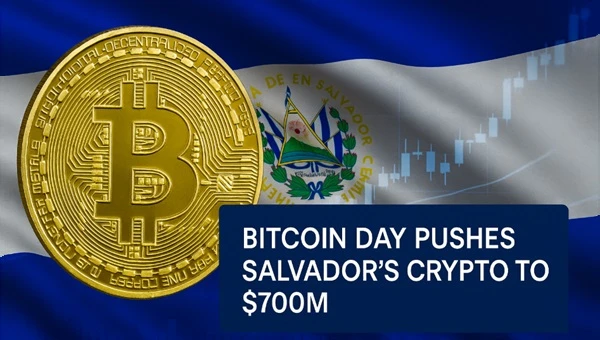

A Nation’s Bold Bet
In June 2021, El Salvador stunned the world by adopting Bitcoin as legal tender alongside the U.S. dollar, a first for any nation. Spearheaded by Bukele, the policy sought to boost financial inclusion and reduce remittance costs, which fuel nearly a quarter of the economy.
The government began acquiring Bitcoin immediately, later implementing a daily purchase plan in March 2024 to steadily grow reserves. Today, the nation holds 6,313 Bitcoin, valued at over $700 million with prices near $110,000 per coin.
Citizen response has been uneven. While tech enthusiasts embraced the Chivo wallet with government-backed incentives, broader adoption remains low. Recent data shows only a fraction of transactions involve Bitcoin, with many wary of its price swings. Globally, the move has inspired exploratory talks in nations like Panama, but El Salvador’s full embrace remains unmatched.
The September 2025 purchase of 21 Bitcoin, timed for Bitcoin Day, nods to the cryptocurrency’s 21 million coin cap. Bukele framed the acquisition as a symbol of national resolve, celebrating four years of legal tender status. Executed at market rates, the buy adds to a portfolio with significant unrealized gains of over $400 million. Official records confirm the $700 million valuation, a sharp rise from early investments at lower prices.
This milestone lands as Bitcoin rebounds from 2022 lows to six-figure levels. Yet, the purchase defies a 2024 deal with the International Monetary Fund, which tied a $1.4 billion loan to halting new Bitcoin buys and mandatory acceptance. Bukele’s persistence signals a bold prioritization of long-term vision over short-term compliance, risking future loan disbursements.
The Bitcoin experiment has reshaped El Salvador’s economic landscape with mixed results. Hopes for cheaper remittances have largely unmet, with under 2 percent of transfers using crypto channels. Growth dipped in 2022 but stabilized by 2024, buoyed by tourism drawn to the nation’s crypto-friendly image. Unrealized gains provide a fiscal buffer, but Bitcoin’s volatility threatens budget stability if prices plummet.
Critics, including the IMF, highlight systemic risks from price fluctuations. Domestic hurdles include low adoption and infrastructure gaps, which have slowed mainstream integration. Still, the government presses on, training thousands of public workers in crypto basics and enabling select banks to offer Bitcoin services under new laws. Success depends on building public trust and closing digital divides.
Contrasting Crypto Strategies
El Salvador’s aggressive strategy contrasts with other players’ approaches. MicroStrategy, a U.S. firm, holds over 200,000 Bitcoin, acquired through corporate treasury investments since 2020, dwarfing national efforts.
Japan’s Metaplanet mirrors El Salvador’s daily purchases, starting in 2024 with smaller-scale buys to hedge inflation. Bhutan, a Himalayan kingdom, focuses on state-backed mining, leveraging hydropower to produce over 1,000 Bitcoin annually.
Norway’s sovereign wealth fund indirectly holds Bitcoin through stakes in crypto-related firms, avoiding direct purchases.
In Latin America, Argentina explores stablecoins to combat hyperinflation, while Paraguay mines crypto using hydroelectric power but holds minimal reserves. Venezuela, despite early crypto rhetoric, has leaned on its Petro token, which lacks Bitcoin’s market depth.
Globally, institutional interest surges, with exchange-traded funds and corporate treasuries gaining traction. El Salvador’s holdings, though modest, signal a shift toward digital assets as strategic reserves. The 2022 crypto crash tested similar bets, but recent recoveries bolster confidence, keeping El Salvador’s experiment in the global spotlight.
The Road Ahead
El Salvador isn’t slowing down. Plans for geothermal Bitcoin mining and new financial ties are moving ahead, even as volatility threatens to swing fortunes sharply in either direction. Hitting the $700 million mark puts the country firmly on the map as a crypto leader, yet progress will rely on sound execution and public support.
As Bitcoin Day 2025 wraps up, the world is watching to see if the gamble sparks real financial change or struggles under pressure. By challenging economic norms, El Salvador has already secured its place in the global conversation on digital money.
He has worked with several companies in the past including Economy Watch, and Milkroad. Finds writing for BitEdge highly satisfying as he gets an opportunity to share his knowledge with a broad community of gamblers.
Nationality
Kenyan
Lives In
Cape Town
University
Kenyatta University and USIU
Degree
Economics, Finance and Journalism


Facts Checked by Vlad Hategan

 Fact checked by
Fact checked by 

 eabungana@gmail.com
eabungana@gmail.com 